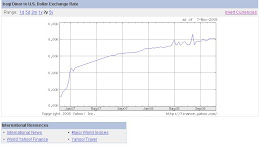Yesterday, a ministry official told Al Zaman that another ship loaded with 30 thousand tons of rice is expected to arrive later this month, flowed by a third ship loaded with 30 thousand tons of the same substance.
He pointed out that the operations of transporting rice, of 91 thousand tons, are currently continuous from the Jordanian harbor of Al Aqaba to Iraq under new contracts to import 220 thousand tons. Another ship is hoped to arrive at the same harbor during this month, also loaded with 30 thousand tons of rice.
At present, there are successive operations of transporting 214 thousand tons of wheat from the Syrian Tartus Harbor to the warehouses and silos of the trade ministry, 39 silos, distributed all over Iraq. Meanwhile, two ships are expected to arrive at the said harbor during this month, loaded with two cargos of wheat of 100 thousand tons.
The trade ministry has signed contracts with companies to import 550 thousand tons of wheat to cover the needs of the ration cards. The consumption of Iraq of this substance is approximately 220 thousand tons a month.
Meanwhile, the health ministry has executed a number of health institutions in Nainawa province. It is requesting the trade ministry to prepare its warehouse to accommodate the imported medicines.
In a statement, which Al Zaman received a copy of, Ammar Al Safar, deputy health minister for reconstruction and donors’ affairs, said, “Model health centers have been established in Nainawa province in Al Wehda, Al Nor, Al Karama, Al Be’aj, Al Hamdania and Hammam Al Alil regions, in addition to creating a consultation clinic for emergencies in Tala’far and establishing 8 residence buildings in the province, for employees and health cadres. He pointed out that the total costs of the projects have reached 2 billion and 30 million dinars.
Within the same context, a health ministry source said that the ministry has addressed the trade ministry for the purpose of preparing warehouses for the purpose of storing great amounts of medicines and medical supplies, which are to be exported, especially after the warehouses of the ministry became full of medicines, in addition to signing importation contracts with companies to overcome the shortage of medicines. He confirmed that the medicines were sent to hospitals and governmental health centers after they underwent laboratory examinations to verify their validity for human use. (Source) Khayon Ahmed Saleh – Adnan Abdul Hassan Al Zaman

